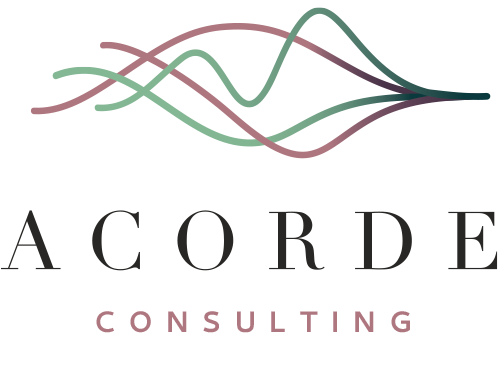Shifting from transactional to transformational
relationships takes work...are you ready?
Go beyond diversity and representation. See conflict as an opportunity. Leverage your influence to create social change. Stand in your power. Get inspired.
Select one service or have us customize an approach to meet your needs.
Organizational Culture and Equity Audits
Our organizational climate surveys and equity audits have successfully helped clients across sectors identify and transform organizational and systemic gaps impeding their equity and justice efforts.
By performing an audit, we can help you determine your strengths and where there’s work left to do — such as identifying areas of underrepresentation and barriers to inclusion, setting a baseline to track progress over time, and driving informed, data-backed decisions for lasting change.
+ Learn More
Our audits can include:
- Quantitative and qualitative data analysis, including listening sessions and confidential surveys, that help illuminate your organization’s strengths and challenges in racial equity and anti-oppression work
- Comprehensive review and sensitivity reading of policies, practices, and norms to assess where shifts can be made toward a more equitable and just culture that cultivates belonging
- Comprehensive reports and/or presentations with realistic and actionable recommendations that your organization can make to guide short and long term efforts
Training and Workshops
Training does not solve problems or advance equity or justice on its own. Organization-wide training, however, can be an effective tool to set organizational intentions and raise the collective baseline understanding of equity-related concepts and frameworks. Our collaborative group processes are designed intentionally to facilitate deep dialogue, increase capacity for critical thinking and analysis, politicize participants, and support healing, transformation, and action.
+ Learn More
Our trainings are customized to be responsive to the needs and goals of your team and can be tailored to the baseline understanding identified in an initial assessment. Trainings are highly interactive, trauma-informed, and move participants towards identifying concrete anti-racist and anti-oppressive actions they can take in their own lives and in their work. To increase accountability and the likelihood of action for making transformational changes, we strongly recommend organizations invest in additional consultation and coaching to support training outcomes.
Our most popular training areas:
- Organizational Racial Equity Principles and Applications
- Interrupting Racial Microaggressions
- Unpacking Classism and Class and Race Intersections
- Equity-informed Conflict Resolution in the Workplace
- Creating Values-based and Implementable Group Agreements
- Grassroots Fundraising 101 for Nonprofits and Activist Groups
- Decision-making for Shared Power and Equity
Coaching, Consultation, and Facilitation
Whether you need to gain insight on how to manage difficult transitions, crises, or workplace conflict or your group could use some guidance and thought leadership on designing equitable and justice-informed organizational structures, policies and practices, our coaching, consultation, and facilitated dialogues are focused on supporting these transformational changes in your workplace culture. Coaching is designed for individual leaders, change agents, and teams.
+ Learn More
What we do:
Acorde's collaborative approach supports teams in building the competencies, structures, and tools necessary for advancing intersectional equity and justice efforts throughout all aspects of your organization, helping you support and sustain a liberatory workplace culture. We can help build your capacity and confidence by providing research, strategy, and tailored support to the challenges you're facing.
What we offer:
- Capacity Building and Strategy Support for Organizational Change, Racial Equity, and Justice
- Executive Coaching and Consultation for Organizational Leaders, Change Agents, and Equity Teams
Areas of experience include but are not limited to:
- Leading for Diversity, Equity, Inclusion: support for HR professionals, exectuives, boards, and equity teams
- Creating trauma- and equity-informed "people first" workplace policies, programs, and benefits
- Navigating and leading organizational change and transitions
- Unpacking and addressing organizational power dynamics
- Understanding identity in the workplace
- Organizational development and (re)structuring: models for liberatory practice and democratic organizational governance; building systems for decison-making, accountability, collaboration, and shared leadership
- DEI and trauma-informed group facilitation and process design
- Retreat facilitation for aligning your team around culture, structure, and strategy
- Custom processes suited to your organizational or individual needs
Conflict resilience for organizations:
- Equity-informed conflict mediation for individuals and groups
- Group processes for addressing complex dynamics and harm
- Facilitated praxis groups for healthy communication and healing
- Workplace policies for conflict transformation and accountability
Speaking
Melody Martínez doesn’t shy away from uncomfortable conversations and topics. She understands that difficult conversations — especially those related to identity, positionality, and power — can lead to transformative environments at work and in our social groups. With candid storytelling, grace, humor, and a firm and compassionate approach, she engages groups on topics that help us all see and realize our power and potential for justice.
+ Learn More
Most requested topics:
- Having Difficult Conversations: Race, Class, Gender, and Disability
- Understanding and Taking Action: White Supremacy Culture in Nonprofits
- Creating Liberatory Workplaces and Movements
- Equity and Inclusion at Work, Is it Enough?
- Race, Equity, and Inclusion in Veterinary Medicine and Animal Welfare
- Intent vs. Impact, Implicit Bias, and Interpersonal Conflict




